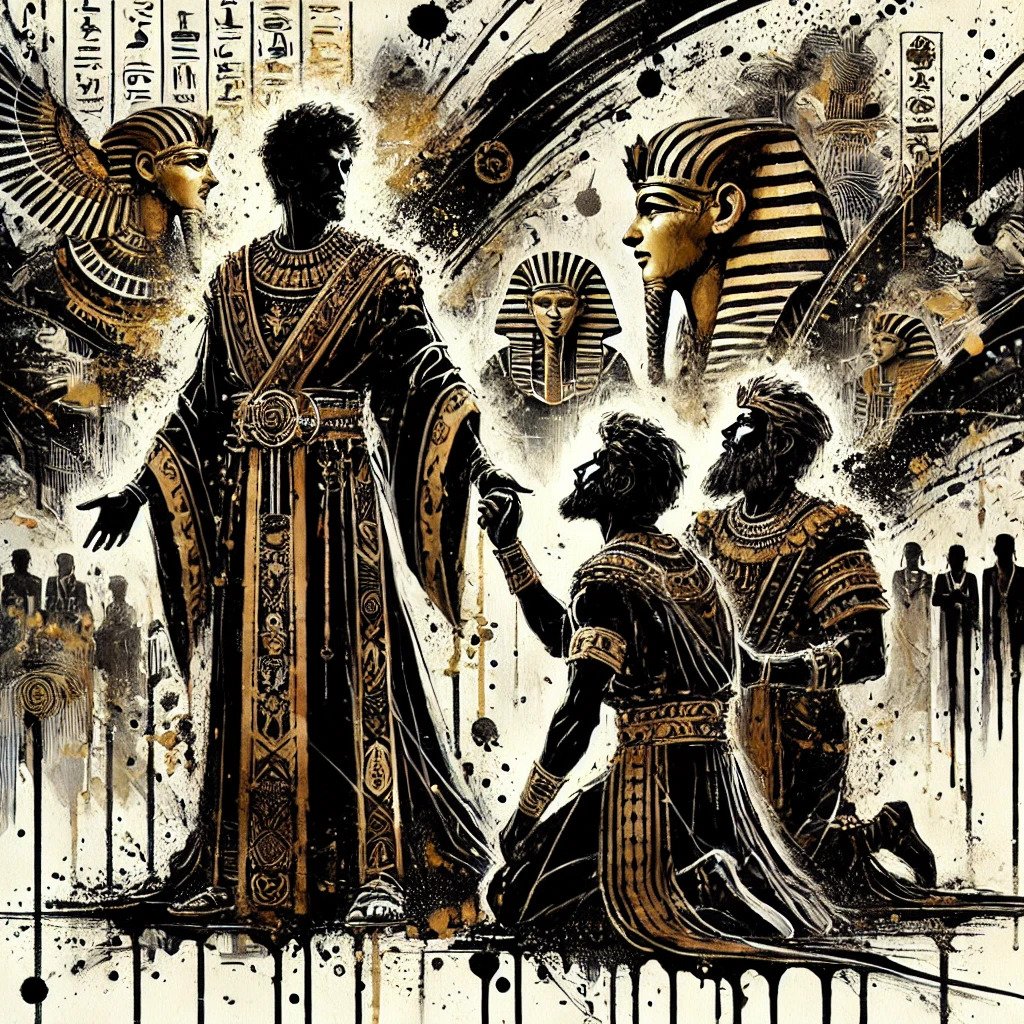From Trauma to Initiation: Joseph’s Journey of Redemption
“But Joseph said to them, ‘Have no fear! Am I a substitute for God?Besides, although you intended me harm, God intended it for good, so as to bring about the present result—the survival of many people. And so, fear not. I will sustain you and your dependents.’ Thus he reassured them, speaking kindly to them”. (Genesis chp. 50)
Joseph transformed his story of trauma into a journey of initiation. Psychologist Francis Weller points out that trauma and initiation look very similar on the surface. In both, something profound changes in our lives. We experience a major upheaval that alters our lives completely, and we cannot return to how things were before. The difference, Weller claims, is that when a person experiences trauma, they wish to return to their life as it was before the trauma. In contrast, when one undergoes initiation, they are grateful for the upheaval and have no desire to return to the way things were before.
The difference between a traumatic experience and a journey of initiation is not external but internal. The distinction lies in how a person frames and processes the difficult experiences they've endured.
Joseph's life story could have been traumatic. His brothers sold him into slavery, and the mistress he served falsely accused him, leading to his imprisonment. To cover her own guilt, she accused him of sexual misconduct, perhaps even of attempting a sexual assault. “she called out to her servants and said to them, “Look, he had to bring us a Hebrew to dally with us! This one came to lie with me; but I screamed loud” (Genesis 39:14). However, as events unfolded in miraculous ways, Joseph was eventually released from prison and became the viceroy of Egypt. Years later, a drought affected the entire region, and his brothers came to Egypt to buy grain to save their families from starvation. Eventually, they discovered that the man they were negotiating with—the viceroy—was indeed their brother Joseph, whom they had sold into slavery years before.
Joseph’s brothers were fearful and ashamed. They were certain that now, with power in his hands, he would seek revenge for what they had done to him. But he did not.
The first thing Joseph told them was that punishment and revenge were not his role as a human being: “Am I in place of God?” In other words, if there were unresolved karmic accounts between them and God, that was not his business. But then, he went even deeper and said the key phrase indicating that he had transformed the traumatic events he’d experienced into a process of initiation: “You meant it for harm, but God meant it for good, to bring about what is now being done—the saving of many lives.”
In other words, although you intended to harm me, from my perspective today, I can see that everything that happened, including your “evil deeds,” was directed by a higher plan. You served as instruments in the hands of God, or a higher wisdom, to advance the world’s evolutionary path. Joseph even argued that if they hadn’t tried to cancel him and get rid of him, they and he alike might now be perishing from hunger: “to bring about what is now being done—the saving of many lives.”
Since, from Joseph’s perspective, what he had gone through was perceived as an initiation rather than trauma, the whole world already appeared sanctified.
A person who has undergone such initiation can tangibly see how even those who tried to harm them are merely instruments in the hands of the sacred to advance divine intentions. This implies that there is no real essence to the “Other-Side” (“Sitra-Achrah”). The entire world serves as a sacred vessel, including everything that might seem like the embodiment of injustice and wrongdoing.
When we move from a consciousness of trauma to a consciousness of initiation, our entire worldview undergoes a profound transformation. What initially appears broken, cracked, and divided in the world becomes clear to us as interconnected and aligned with the sacred purpose it serves.
This deep shift in consciousness from trauma to initiation creates within us a connected and integrated world, one where we see beneath the surface. What seems fragmented, divided, and alienated on the surface, reveals itself to us - through initiation’s depths - as part of the miraculous wholeness of reality and as an essential process in its progress toward even greater completeness.
~ Ohah Pele, Mallorca Nov 2024

